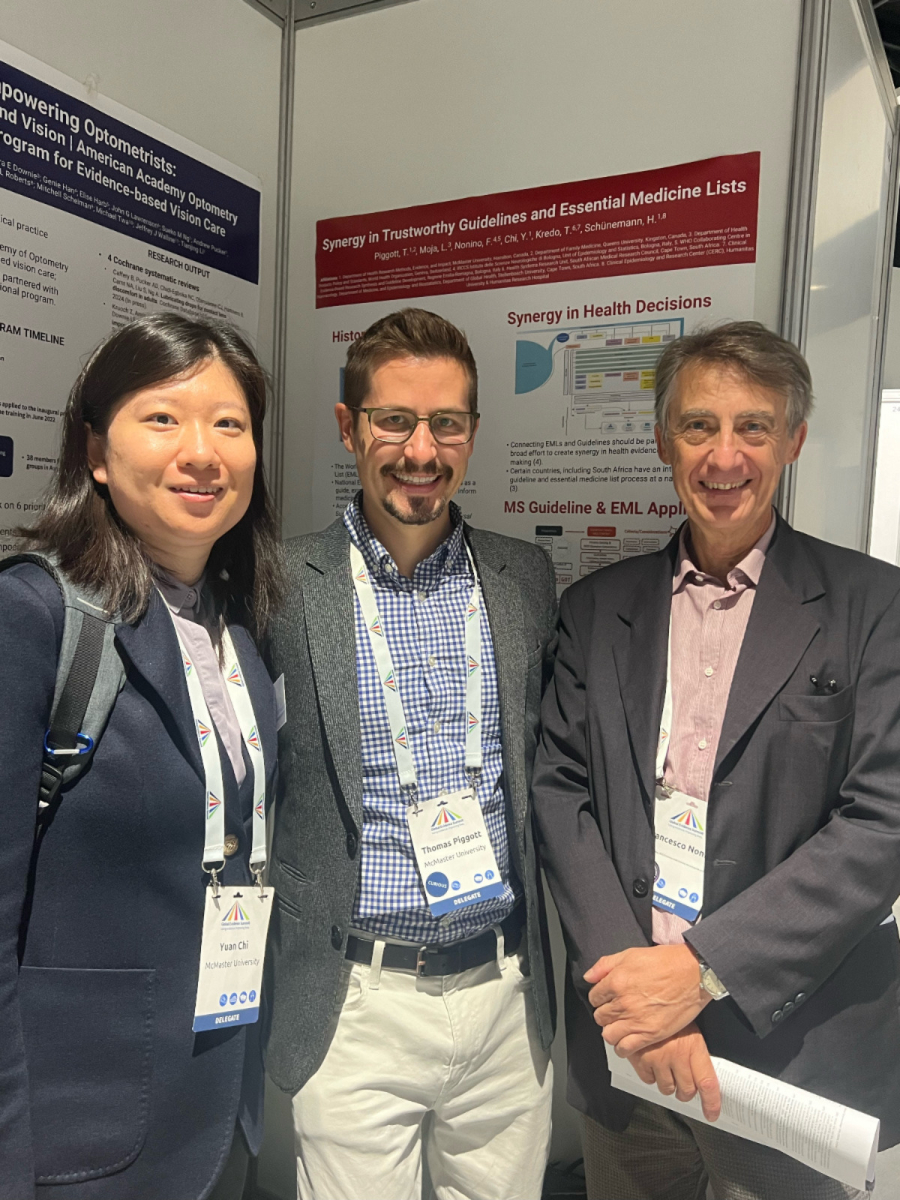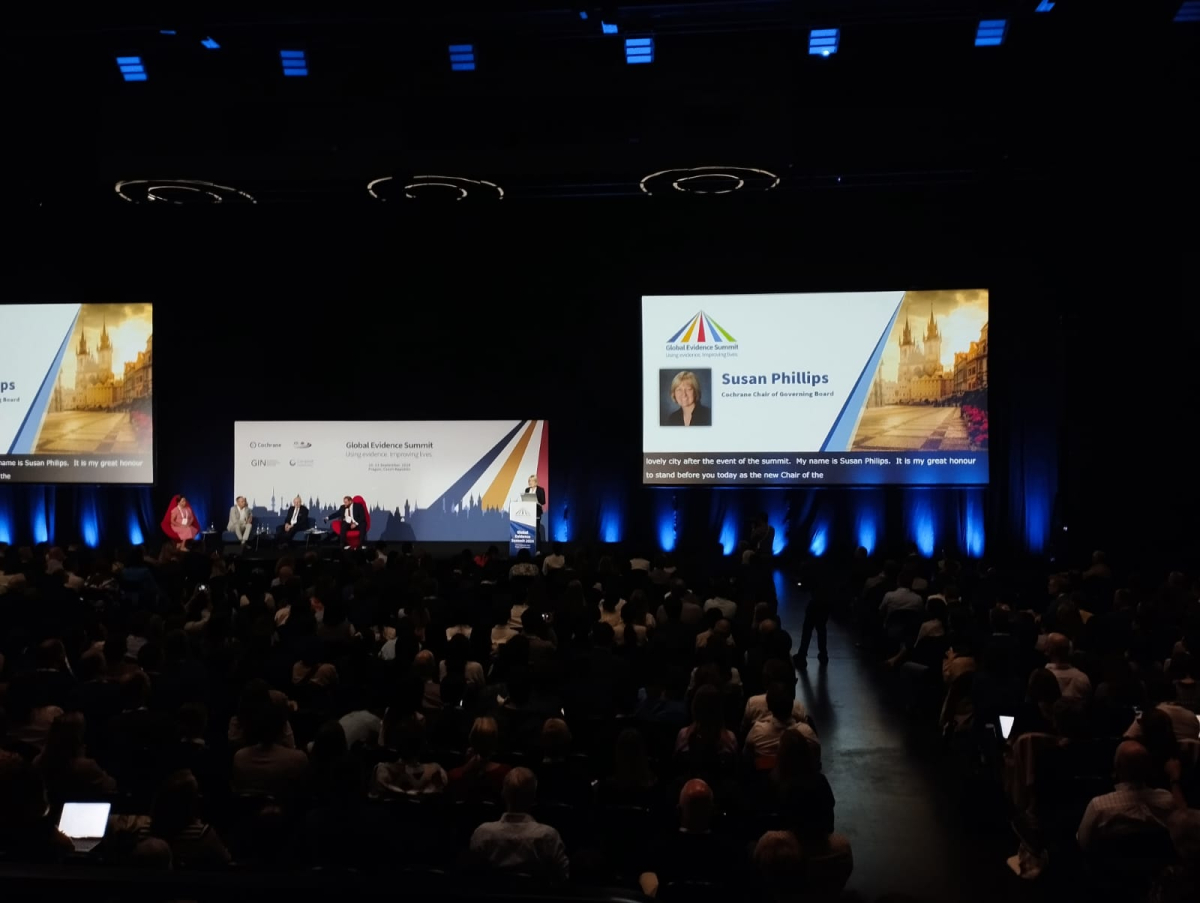
From September 10-13, 2024, the beautiful city of Prague hosted the 2nd Global Evidence Summit (GES 2024).
This global conference provided a unique platform for professionals worldwide to engage in discussions on evidence-based practice across various sectors, including health, education, social justice, the environment, and climate change.
The summit’s core mission was to create a multidisciplinary and cross-cultural space where delegates and speakers could exchange ideas on how to best produce, summarize, and disseminate evidence that informs policy and practice, ultimately improving lives around the globe. The collaboration of four global leaders in evidence-based policy – Cochrane, JBI, GIN, and the Campbell Collaboration – ensured that the Summit served as a cornerstone for those dedicated to using evidence to address global challenges.

Our team actively partecipated to workshops, presentations, and plenaries: a unique chance for learning, sharing and networking with many professionals worldwide. Francesco Nonino, joint co-ordinating editor of our Review Group, presented a poster titled Synergy in Trustworthy Guidelines and Essential Medicine Lists together with Yuan Chi and Thomas Piggott (Department of Health Research Methods, Evidence, and Impact, McMaster University, Hamilton, Canada). The work was also co-authored by Lorenzo Moja (WHO; EML Secretariat, Geneva, Switzerland), Tamara Kredo (Health Systems Research Unit, South African Medical Research Council, Cape Town, South Africa), and Holger Schünemann (Clinical Epidemiology and Research Center, Humanitas University & Humanitas Research Hospital).
The World Health Organization Essential Medicines List, updated regularly, includes medicines that are vital for addressing priority health needs. It acts as a reference for many national EMLs, helping guide public health strategies as well as procurement and policy decisions. However, the WHO EML and national EMLs do not always align with health guidelines.
This poster presented key elements shaping the synergy between EMLs and health guidelines, discussing a recent case study in which a successful application for the inclusion of disease-modifying drugs for multiple sclerosis in the WHO EML was developed together with an evidence-based health guideline.
Finally, during the Summit our team was also delighted to participate in the Cochrane Italia general meeting.

Through valuable lessons and connections, we found the Summit very inspiring, and we are eager to incorporate such an experience into our work!
